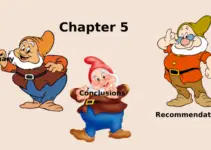Writing the literature review of a research paper needs careful planning. It requires the employment of logical steps before drawing out one’s conceptual framework. This article provides information on how to start a review of literature using Google Scholar, an online database of scientific information, as a source of relevant publications.
The task of doing research is not easy for a beginning researcher. Unfamiliarity with scholarly publications pertinent to a chosen topic causes one to falsely conclude that no work has been done so far on the issue at hand. A good review of literature prevents this tendency. But how should one go about it?
The following article shows how to start a review of literature using Google Scholar, an online database of scientific publications.
Clear Understanding of the Research Topic Before Review of Literature
A literature review revolves around a central theme – the research topic or research problem. The research topic should be stated clearly to guide the review of literature. A good review of literature starts off with a good understanding of the research topic.
Writing the research topic in question form facilitates the review of literature. The research problem arises from one’s observation of a phenomenon that prompts the need for a research investigation.
Examples of Problem Statement
For example, the disaster response team observed that despite government warnings to evacuate in anticipation of a strong typhoon, many of the residents opted to stay in their homes despite the threat to their lives and property.
Several questions arise such as:
1. Does ignorance of the government’s warning of the impending danger an indication that people do not trust weather predictions?
2. Do residents value more their property than their lives?
3. Do the residents feel that they will survive the disaster despite its severity? What made them feel that way?
Use of Relevant Keywords in the Search for Related Literature
The three questions given in the previous section clearly state the focus of the review of literature. One can deduce keywords that may be used for online search of related literature such as “believability of weather predictions” for the first problem statement.
Typing “believability of weather predictions” in Google Scholar returns the following related literature:

The above figure shows that other researchers have conducted studies related to the first problem statement. Two out of ten articles returned have bearing on the first question. We can say then that the topic is researchable. Figure 1 also shows the following information:
1. the title of the study (in large blue fonts);
2. the authors with the main author underlined, the date and the publisher (in green);
3. a meta description that summarizes the page’s content (three lines of description in black highlighting keywords related to the searched keyword);
4. information on article citations (46 and 81 respectively in the two articles); and
5. a link to related articles.
Clicking on the title link of the first article, the following abstract comes up:
Abstract
This study assessed responses to variations of several notable news credibility measures. TV news was evaluated as more credible than newspapers, although its margin of supremacy was a function of researcher operationalizations of the concept.
The study is about news credibility and the influence of the researcher’s method on news credibility. Television news was found more credible than newspapers. But we are not after credibility comparison of television and newspapers. This is not the kind of information that we want. So we proceed to the next article about hurricane forecast and warning system.
Clicking on the title link of the succeeding article, the abstract appears. Although the focus of the article is on hurricane warning, it can be discerned that the article discusses high priority social science issues. Again, this appears to be still out of the topic.
However, getting back to the meta description and upon closer scrutiny, there is an important information that may be of interest to us. It says, “In risk communication, believability depends on trust and confidence in the source, raising …” (Figure 2). This is important information that a researcher can follow through. The article, after all, may be relevant to what we want. We need to secure the article.
We are fortunate that upon checking on the article again, there is a link at the far right that indicates a pdf file (encircled in red) is available for download. After downloading and reading the article, I found out that there are many relevant statements related to the issue of believability of predictions.

It will now easy to collect other articles similar to the above article using the same procedure. Identify the relevant article title, read the meta description, and explore the availability of the material. With patience and a little imagination, you will be able to collect the literature that you need for your research.
You may proceed to the next problem statement and see if you can follow.
©2018 February 16 P. A. Regoniel
[cite]




Simple to understand. Iam interested in purchasing the book but iam in Uganda, guide how I can go about.